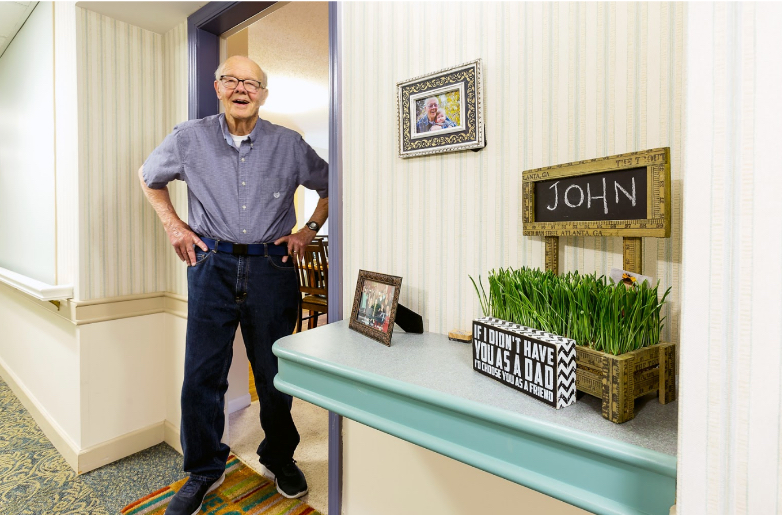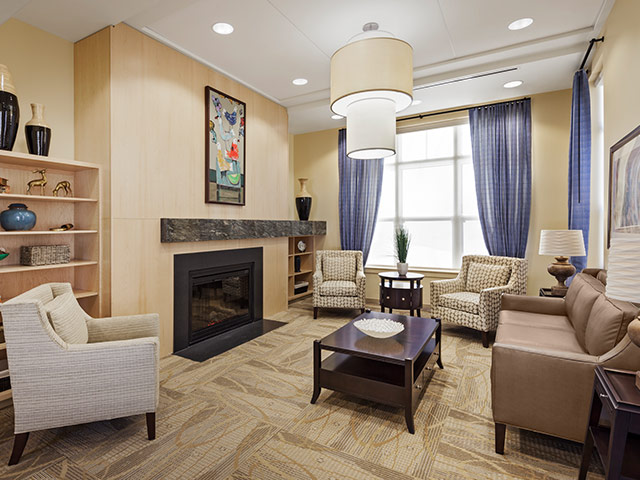Small Memory Carehomes Charlotte: A Heartfelt Alternative
Small Memory Carehomes Charlotte: A Heartfelt Alternative
Blog Article
Everything About Memory Care Solutions: Why Little Memory Care Homes Are an Excellent Selection
Memory treatment solutions play a vital duty in sustaining individuals with Alzheimer's and mental deterioration. Small memory treatment homes stand apart for their individualized method and intimate setup. With reduced staff-to-resident proportions, these homes cultivate stronger connections and customized care. Citizens gain from improved social communications and a secure setting. As family members check out alternatives, understanding the unique advantages of tiny memory care homes becomes essential. What factors should be considered when selecting the ideal home?
Recognizing Memory Treatment Provider
While several may recognize with general elderly treatment choices, recognizing memory treatment solutions is vital for family members encountering the challenges of cognitive decrease. Memory care specifically accommodates individuals with problems such as Alzheimer's disease and various other types of dementia. These solutions give an organized setting that concentrates on enhancing the high quality of life for citizens through specialized care and support.Memory care centers are designed to ensure security and security, frequently including secured settings to prevent roaming. Educated personnel participants are readily available around the clock to aid with daily tasks, medicine management, and personal treatment. In addition, memory care programs often include cognitive stimulation tasks, customized to engage residents and promote psychological well-being. Family members can gain from recognizing these solutions, as they enable educated decisions regarding their enjoyed ones' care, guaranteeing that their certain requirements and choices are addressed in a helpful and thoughtful way.
The Advantages of Small Memory Care Houses
Tiny memory care homes offer distinctive benefits that can significantly improve the high quality of life for locals with cognitive disabilities. One considerable benefit is the intimate environment, which allows for individualized communications amongst personnel and homeowners. This smaller setting fosters meaningful relationships, decreasing sensations of isolation and anxiousness typically experienced by individuals with memory issues.Additionally, the reduced staff-to-resident ratio in tiny memory treatment homes enables caretakers to give even more mindful guidance and assistance. This method not only enhances safety but likewise advertises a sense of security for the residents.Moreover, little memory treatment homes can adapt rapidly to the unique requirements and choices of each local, permitting a much more homelike environment. Such an atmosphere can motivate social engagement and engagement in tasks, ultimately enriching the day-to-day experiences of those living with cognitive disabilities.
Personalized Treatment Program for Locals
Customized care plans are essential in memory treatment homes, as they deal with the one-of-a-kind demands and choices of each citizen. These strategies start with complete assessments performed by competent experts, who evaluate cognitive abilities, clinical history, and personal interests. This tailored strategy guarantees that care is not only effective however likewise respectful of each individual's dignity and autonomy.Moreover, individualized treatment plans are versatile, permitting changes as citizens' demands advance with time. This adaptability promotes a complacency and experience, which is vital for people coping with memory challenges. Caregivers are educated to carry out these strategies consistently, giving support that lines up with the residents' regimens and preferences.Ultimately, personalized treatment strategies boost the top quality of life for residents by promoting well-being, interaction, and freedom, making them a fundamental facet of memory treatment solutions in little memory care homes.
Developing a Home-Like Setting
Creating a home-like atmosphere is essential for fostering convenience and knowledge in memory treatment setups, as it considerably affects citizens' psychological wellness. Little memory treatment homes typically prioritize tailored touches, such as warm color combinations, family pictures, and acquainted furnishings arrangements, which help locals feel a lot more comfortable. Integrating aspects reminiscent of a traditional home, like cozy living areas and communal areas, encourages a sense of belonging.Moreover, using natural light and exterior areas can boost the ambience, promoting relaxation and serenity. Staff members play a substantial role in maintaining this environment by involving with residents in a caring fashion, treating them like family members. Routine activities, such as cooking or horticulture, can also add to a home-like feeling, supplying opportunities for locals to join purposeful experiences. Generally, creating a nurturing setting sustains cognitive feature and psychological security, making it a necessary element of memory treatment services.
Improved Social Interaction and Neighborhood
Improved social interaction and community are essential parts of memory care solutions. By promoting customized social engagement and creating a family-like atmosphere, these solutions advertise significant links amongst locals. Team occasions and tasks better urge engagement, assisting individuals feel a lot more consisted of and supported.
Individualized Social Involvement
While social interaction is vital for overall health, lots of individuals with memory disabilities frequently battle to engage meaningfully with others. Customized social interaction in memory treatment homes addresses this obstacle by creating customized activities that cater to locals' distinct passions and abilities. By concentrating on private preferences, caregivers can promote links that reverberate deeply with everyone. Tasks such as art therapy, songs sessions, and directed discussions advertise cognitive stimulation and emotional expression. Furthermore, small team settings urge sociability and enable for even more intimate communications, boosting sensations of belonging. This technique not just fights sensations of isolation but additionally empowers citizens to keep a sense of identification, inevitably contributing to improved mental health and wellness and lifestyle.
Family-like Ambience
In a memory care setup, cultivating a family-like environment considerably enhances social communication and constructs a sense of community amongst locals. Smaller memory care homes typically prioritize intimate settings, permitting locals to form closer connections with one an additional and personnel members. This nurturing ambience advertises trust fund, which is vital for people with memory impairments. Locals are more probable to involve in discussions and share experiences, developing a helpful network that relieves sensations of loneliness. The experience of common spaces and regimens adds to a sense of belonging, even more urging social check these guys out interaction (personalized memory care). In such setups, psychological bonds thrive, leading to enhanced total health and a better of life for residents as they browse their daily experiences together
Group Activities and Events

Safety and Safety Functions in Small Residences
Many little homes created for memory care integrate crucial safety and security and security functions to guarantee the health of citizens. These homes typically make use of protected access and departure indicate protect against roaming, a typical problem among individuals with memory impairments. Furthermore, surveillance systems and alarm system devices boost tracking, making certain that personnel can promptly react to any kind of uncommon activities.Interior layouts are tailored for safety and security, with lessened risks such as clutter-free paths and sharp edges. Handrails and non-slip floor covering are normally installed to minimize the threat of falls. Staff members are learnt emergency situation procedures, guaranteeing they are prepared for different situations.Moreover, customized treatment strategies may include evaluation of specific safety requirements, providing customized solutions for every local. Generally, these safety and security and safety and security attributes develop a nurturing setting where locals can flourish while keeping their dignity and independence.
Exactly how to Choose the Right Memory Care Home
Just how can households assure they select the most appropriate memory care home for about his their loved ones? The choice calls for careful factor to consider of several factors. Family members need to review the facility's personnel credentials and training, ensuring that caretakers are experienced in handling memory-related problems. Next, it's essential to examine the home's environment, focusing on safety and security functions and whether it promotes a sense of area and belonging. Visiting the facility can give understanding into daily tasks and the social environment, which are crucial for mental excitement and psychological health. Additionally, families must make inquiries about the treatment plans provided, ensuring they are customized to individual needs. Taking into consideration the home's location and availability for family members check outs can contribute to a smoother change. By attending to these aspects, households can make an educated decision that prioritizes their liked one's convenience and lifestyle in a memory treatment setting.
Regularly Asked Questions
What Qualifications Should Staff Members in Memory Treatment Houses Have?
Employee in memory care homes must possess relevant accreditations, experience in dementia treatment, strong interaction skills, and concern. Ongoing training in behavior administration and restorative treatments improves their ability to sustain residents successfully.
How Do Memory Care Solutions Differ From Traditional Assisted Living?
Memory treatment solutions concentrate especially on individuals with memory disabilities, giving specialized assistance and organized environments. In contrast, standard assisted living uses basic aid with day-to-day tasks, doing not have the customized method necessary for those with cognitive challenges.
What Kinds of Tasks Are Offered in Memory Care Houses?
Memory treatment homes commonly provide a variety of activities designed to involve homeowners. Common alternatives consist of art treatment, music sessions, cognitive video games, exercises, horticulture, and social events, all targeted at improving health and cognitive feature.
Can Homeowners Bring Their Own Possessions to Memory Treatment Homes?
Residents can generally bring their own items to memory care homes, allowing them to personalize their living space - personalized memory care. This practice helps create an acquainted atmosphere, advertising convenience and a sense of identity for the individuals

Just How Are Family Members Members Associated With the Care Refine?
Member of the family play an important function in the treatment procedure, commonly taking part in decision-making, attending care meetings, and supplying psychological support. Their involvement fosters a collaborative environment, boosting the homeowner's total well-being and quality of life. While lots of might be familiar with basic elderly treatment choices, recognizing memory treatment solutions is important for families facing the challenges of cognitive decline. These solutions offer an organized atmosphere that concentrates on improving the top quality of life for residents through specialized treatment and support.Memory treatment centers are designed to guarantee security and safety and security, usually including safeguarded atmospheres to protect against roaming. Individualized care strategies are essential in memory care visit site homes, as they provide to the special requirements and preferences of each citizen. Team participants in memory treatment homes ought to possess appropriate accreditations, experience in dementia care, strong interaction abilities, and concern. Memory treatment services concentrate particularly on individuals with memory disabilities, providing customized support and organized settings.
Report this page